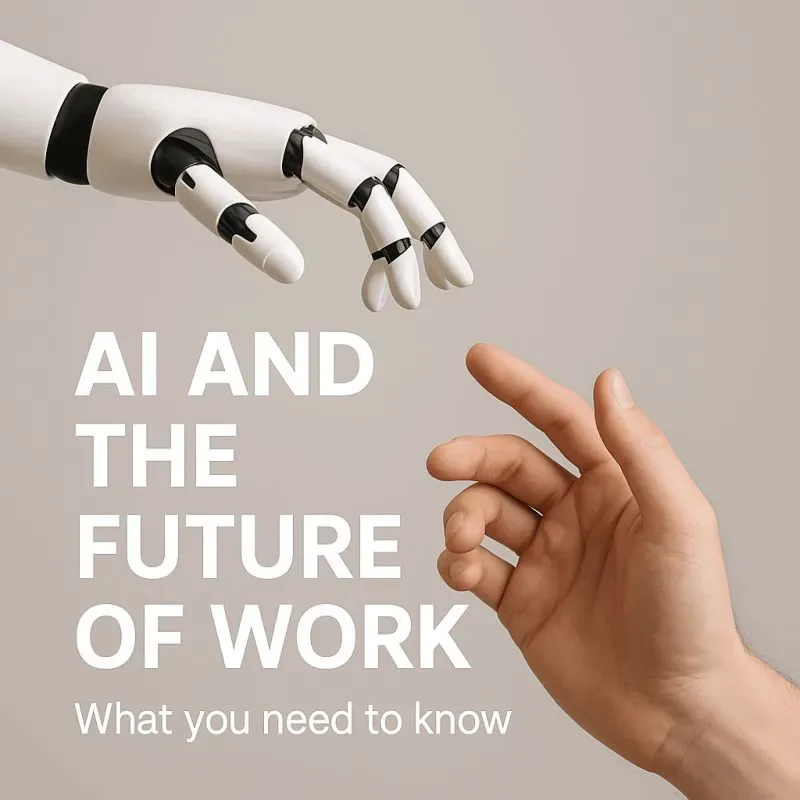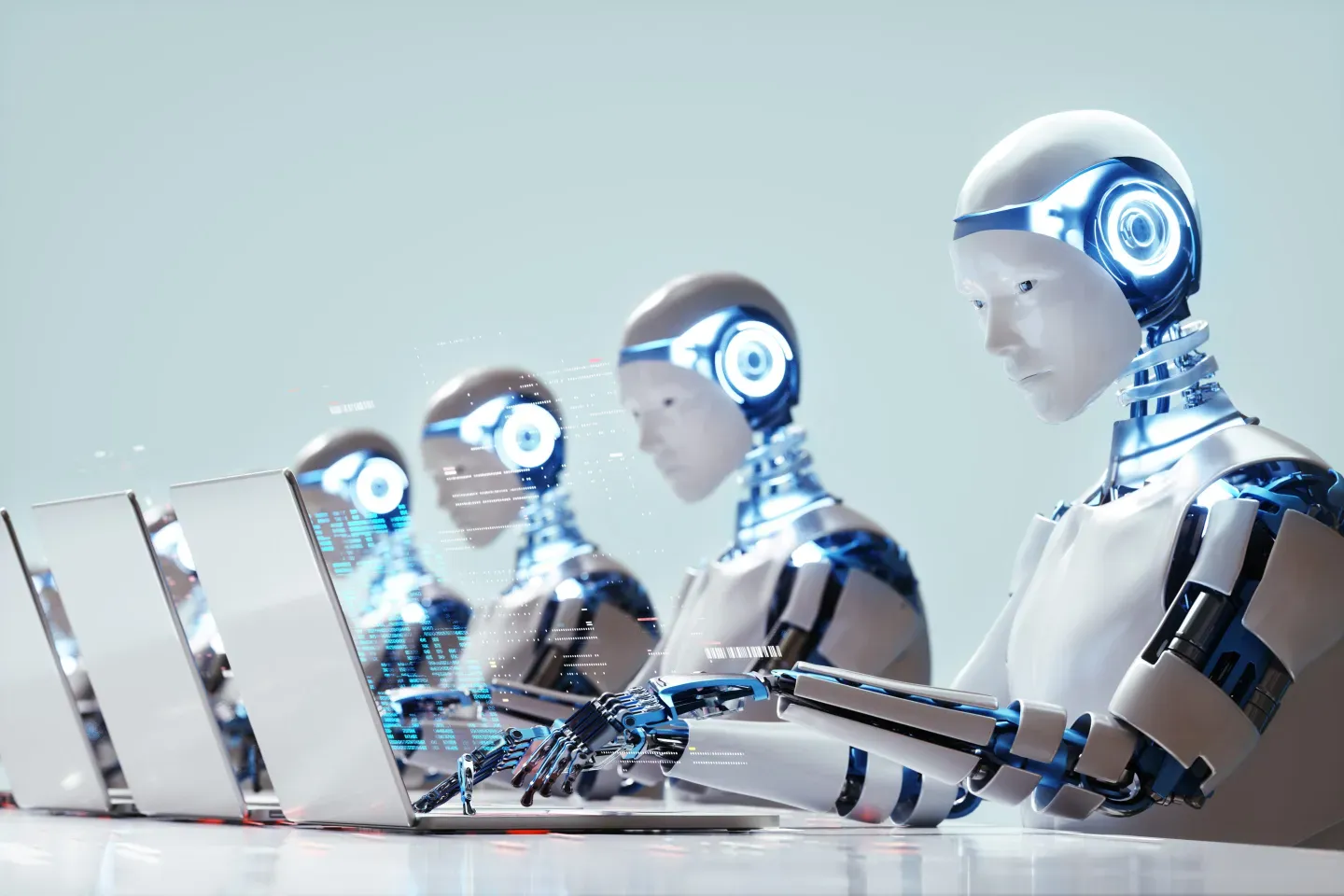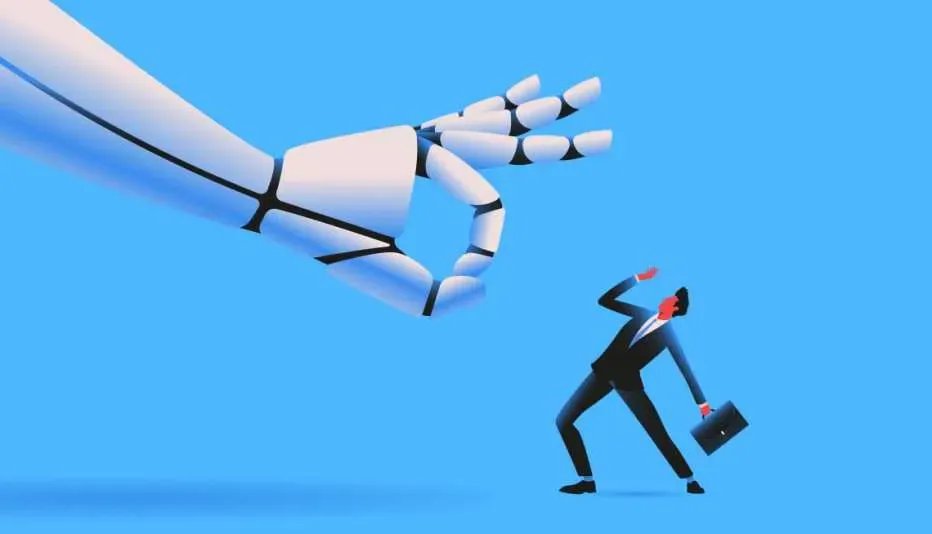Will I Lose My Job to AI? What You Need to Know
Discover AI's impact on jobs, at-risk roles, and how to protect your career in the AI era. Future-proof yourself.
Sarah, a copywriter with five years of experience, received an email at 3 PM on Tuesday. Her company decided to replace her with AI. No warning, no transition period.
If you're asking "Will AI take my job?", you're not alone. This guide shows you which jobs face real AI threats and how to protect your career.
Summary
- What's Really Happening With AI Jobs
- Jobs Most at Risk
- AI-Proof Careers
- Job Evolution vs Replacement
- How to Future-Proof Your Career
- Industries Leading AI Adoption
- Essential Skills for AI Era
- Steps to Take Today
- Frequently Asked Questions
- Conclusion
What's Really Happening With AI Jobs
Let's cut through the fear and look at facts. Research shows 47% of US jobs could face automation. But here's what headlines miss: "could be automated" doesn't mean "will disappear tomorrow."
We're facing job transformation, not job apocalypse. Think about telephone operators or typing pool secretaries. Those jobs didn't vanish - they evolved into new roles.
Key numbers tell the real story:
- 85 million jobs may be displaced by 2026
- 97 million new jobs could emerge simultaneously
- 70% of job skills will change in five years
The result? More jobs overall, but different types of work.

Jobs Most at Risk
Not all jobs face equal AI threat. Understanding vulnerability helps you make smart career moves.
High-Risk Categories
Data Entry and Processing If you mainly move information between systems, you're in danger. AI excels at pattern recognition and data handling without creativity.
Basic Customer Service Simple inquiries and routine problems increasingly go to AI chatbots. Complex relationships still need humans.
Routine Content Creation
Basic blog posts and product descriptions can be AI-generated. Quality and strategy still require human input.
These roles share common traits: repetitive tasks, predictable patterns, minimal human interaction. AI thrives in structured environments with clear rules.
Why These Jobs Are Vulnerable
- Limited creativity requirements
- Rule-based decision making
- Minimal emotional intelligence needed
- Pattern-based work processes
Even in vulnerable categories, you can add human value that AI can't match.
AI-Proof Careers
Certain jobs remain largely safe from automation. These require uniquely human capabilities current AI struggles with.
Creative and Strategic Work
Creative Directors AI generates content, but can't understand brand strategy or cultural nuance. Creative leadership needs intuition and strategic thinking.
Therapists and Counselors
Human empathy and genuine therapeutic relationships remain irreplaceable. AI might help with diagnostics, but healing requires human connection.
Complex Sales Roles B2B sales, relationship building, and trust development are fundamentally human activities requiring emotional intelligence.
Skilled Trades
Craftspeople and Technicians Electricians, plumbers, and HVAC workers handle unpredictable environments requiring problem-solving and physical adaptation.
Healthcare Professionals Patient care demands empathy, bedside manner, and complex decision-making in high-stakes situations.
Leadership Roles
Executive positions require strategic thinking, culture development, and stakeholder management that AI cannot provide.

Job Evolution vs Replacement
Most discussions get this wrong. They focus on replacement instead of transformation. Think "AI + Humans" not "AI vs Humans."
The Collaboration Model
Successful professionals learn to work WITH AI, creating new job categories:
AI-Enhanced Roles:
- Content creators using AI for research and drafts
- Analysts leveraging AI for data processing
- Designers using AI for concept generation
New AI Management Jobs:
- Prompt engineers optimizing AI interactions
- AI trainers improving model performance
- AI ethicists ensuring responsible use
Real Examples
Smart copywriters aren't being replaced - they're evolving. They use AI for research and initial drafts, then add psychology, brand voice, and customer understanding.
The future belongs to professionals who collaborate effectively with AI while providing uniquely human value.
How to Future-Proof Your Career
Future-proofing isn't about finding the perfect "AI-safe" job. It's developing skills that stay valuable regardless of technology.
Essential Meta-Skills
Learning Agility Quickly acquiring new skills and adapting to change is the most valuable capability. Technology evolves; your ability to evolve determines career success.
Systems Thinking
Understanding how business parts connect helps identify where human insight adds value. AI optimizes components; humans understand the bigger picture.
Emotional Intelligence As AI handles analysis, emotional intelligence becomes more valuable. Reading people and building relationships stays uniquely human.
Build AI Literacy
You don't need programming skills, but you need to understand:
- How AI works and where it adds value
- AI limitations requiring human input
- Effective communication with technical teams
- Informed AI adoption decisions
Develop Hybrid Skills
The most valuable professionals combine expertise with AI proficiency:
- Marketing + AI: Data analysis and content generation plus human creativity
- Finance + AI: Routine analysis plus strategic interpretation
- HR + AI: Resume screening plus culture fit assessment
Industries Leading AI Adoption
Understanding which industries embrace AI helps with strategic career planning.
Early Adopters
Technology Sector Tech companies lead AI adoption for code generation and customer support. AI literacy is essential, not optional.
Financial Services
Banks use AI for fraud detection and risk assessment, rapidly transforming the industry and creating new roles.
Healthcare Industry AI revolutionizes diagnostics and patient care. Healthcare professionals understanding AI applications become industry leaders.
Emerging Applications
Retail and E-commerce: Personalization and inventory management Manufacturing: Predictive maintenance and quality control
If you're in a rapidly adopting industry, you can lead transformation or risk being left behind. Learn more about AI applications and tools to stay ahead.

Essential Skills for AI Era
As AI handles routine tasks, certain human skills become exponentially more valuable.
Critical Thinking
AI processes information and identifies patterns but struggles with ambiguous problems requiring creative solutions. Learn to ask better questions and probe deeper than surface-level AI responses.
Communication and Storytelling
Professionals making money with AI aren't just using technology - they're communicating its value effectively. Key components:
- Translating technical concepts for non-technical audiences
- Building compelling narratives around data
- Facilitating human-AI collaboration
Ethical Reasoning
AI optimizes for metrics but struggles with ethical considerations. Professionals navigating ethical complexities and making sound judgments become increasingly valuable.
Cultural Intelligence
AI trained on global data often misses local context and cultural nuance. Understanding these subtleties provides crucial AI implementation guidance.
Essential skills checklist:
- Critical thinking and problem-solving
- Emotional intelligence and empathy
- Creative and strategic thinking
- Communication and collaboration
- Adaptability and learning agility
Steps to Take Today
Here's what you can do right now to protect your career.
This Week
Audit Your Role Categorize daily tasks:
- Routine/Repetitive (high automation risk)
- Creative/Strategic (low risk)
- Interpersonal (low risk)
- Analytical (medium risk)
Focus on developing low-risk categories while automating high-risk tasks.
Start Learning AI Tools Spend 30 minutes daily with relevant AI tools:
- Writers: GPT-4 or Claude
- Designers: Midjourney or DALL-E
- Analysts: ChatGPT with data plugins
- Marketers: Jasper or Copy.ai
Next 3 Months
Create Learning Plan Develop structured learning based on your industry. Check out guides on prompt engineering and AI applications for structured approaches.
Build AI Portfolio Document how you use AI to improve work quality and efficiency. This shows adaptability to potential employers.
Network with AI-Forward Professionals Connect with people successfully integrating AI. Learn from their experiences and challenges.
Next Year
Consider Formal Education Formal AI or data science education provides credibility and deeper understanding for working professionals.
Develop Thought Leadership
Share AI integration experiences through blog posts or presentations. Establish yourself as someone understanding both AI and your industry.

Frequently Asked Questions
Which jobs are most at risk from AI automation?
Data entry, basic customer service, routine content creation, and simple financial analysis are most vulnerable to AI replacement.
What careers are safe from AI replacement?
Creative roles, therapy, skilled trades, complex sales, and leadership positions requiring emotional intelligence remain largely AI-proof.
How can I future-proof my career against AI?
Develop AI literacy, focus on creative and strategic skills, and learn to collaborate with AI tools rather than compete against them.
Should I be worried about losing my job to AI?
While AI will change many jobs, it's creating new opportunities. Focus on adapting and learning rather than worrying about replacement.
What skills make me valuable in an AI world?
Critical thinking, emotional intelligence, creativity, communication, and the ability to work with AI tools are increasingly valuable.
Conclusion
The question "Will AI take my job?" assumes humans and AI compete for the same roles. But successful professionals discover a different path: collaboration.
The future belongs to those working WITH AI, not against it. This means understanding AI strengths (processing power, pattern recognition) and human strengths (creativity, empathy, strategic thinking) and combining them effectively.
Your career security doesn't depend on avoiding AI. It depends on becoming excellent at human-AI collaboration until you become indispensable.
Whether you're starting your career or are a seasoned professional, stay curious, keep learning, and develop skills that complement artificial intelligence. The AI revolution is here - lead the change instead of following it.
For more insights, explore our guides on creating efficient AI prompts and understanding AI agents. Discover the best AI tools for 2026 to start your AI journey today.

What are LLMs? Large Language Models Explained

How to Write Better Prompts for Generating Programming Code

What is GEO? Generative Engine Optimization Guide

Best Prompt Engineering Resources And Courses to Learn
